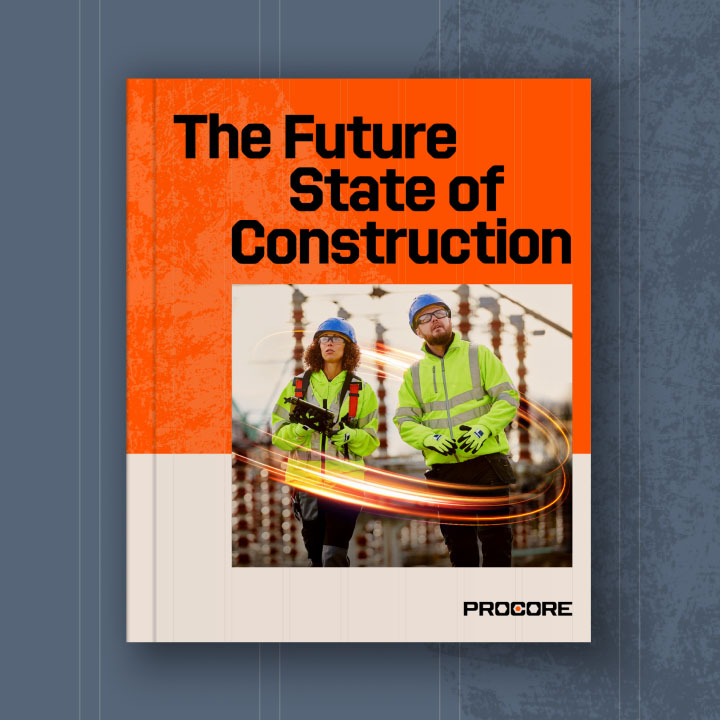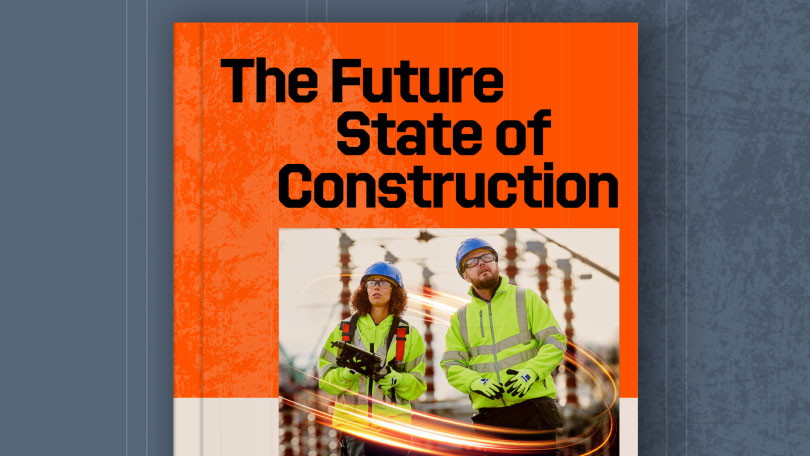— 8 min read
Part 3: Great on the Tools, Behind on the Books. Why Business Know-how Matters More Than Ever


Last Updated Sep 10, 2025

Tom Proctor
Solutions Engineer, Enterprise
13 articles
Before joining the world of technology, Tom worked as a Contract Administrator. This hands-on experience gives him a unique perspective that he leverages in his current role at Procore, where he has been for the past two years. Tom is passionate about helping construction businesses understand best practices around project management solutions and the many benefits they can provide.

Craig Dunlop
Construction Manager and Business Development Manager, Mainbrace Constructions
From apprentice carpenter to Construction Manager and Business Development Manager, Craig Dunlop has spent more than 25 years learning what drives success – and what can derail it – in construction payments. Along the way, he’s built deep and respected expertise across domestic and commercial projects. Today, Craig leads major projects at Mainbrace Constructions – a national retail and industrial builder with 1,800+ projects delivered worth over $6 billion and counting.
Last Updated Sep 10, 2025

In the final instalment of this three-part series, I catch up with Craig Dunlop, Construction Manager and Business Development Manager at Mainbrace Constructions, to dig into why so many tradies are taught plenty of practical skills, but rarely the business know-how needed to run their own show. We look at how this ongoing failure to teach basic business smarts contributes to the payment problems plaguing the construction industry and outline some practical solutions that could help turn things around.
Table of contents
Business Smarts: The Missing Subjects in Industry Training
In construction, hands-on technical skills will get you started. But it’s business skills that will keep you standing. That’s why strengthening those skills is key to solving many of the industry's payment headaches.
Too often, skilled tradies transition into running their own businesses without the training to manage cash flow, navigate contracts, or meet legal obligations.
Craig sees it daily: subcontractors strong on the tools, but struggling with the admin, compliance, and financial side of running a business.
There are so many people who are great at what they do on-site, but if they can't sort out their invoices or don’t understand how our payment systems work it can lead to problems both for them, and the people they’re working with.

Craig Dunlop
Construction Manager and Business Development Manager, Mainbrace Constructions
Mainbrace
The problem is that business skills are often expected to be "picked up on the job". But they’re not necessarily doing that, and the cost of this approach is becoming too high to ignore.
I was telling Craig about a mate who recently finished his TAFE carpentry course in Victoria. Four years of apprenticeship, fully qualified but not once did he cover contracts, progress claiming or business management. Every day focused purely on hands-on technical skills, with no training around what it actually takes to run your own business – which is what so many tradies go on to do.
Craig wasn’t surprised.
"Every state does things a little differently," he said, "but the lack of business training is a widespread issue for everyone. It’s not that business courses don’t exist – they do – but they’re not built for the realities of construction. Generic small business certificates miss the mark, and many tradies either don’t enroll or drop out because the content isn’t specific for our sector."
Even when it comes to getting a builder’s license, the focus stays firmly on technical ability. Having acted as a referee for mates applying to get licensed, I’ve always been asked about their building skills but never about their understanding of financial management, legal compliance or frameworks like Australia’s Security of Payment Acts (SOPA) or New Zealand’s Construction Contracts Act (CCA).
It’s an understandable gap given how training and licensing have evolved over time, but without the right systems in place, it can leave new business owners and the companies that hire them exposed. That contributes to the payment pressures and financial risks we’ve been talking about in terms of running projects, managing cash flow and complying with SOPA and CCA.
Craig Dunlop
Construction Manager and Business Development Manager, Mainbrace Constructions
Mainbrace
The businesses that survive are the ones that treat construction like a business. Builders with organised admin, strong cash flow systems are the ones who are well placed to win work and stay stable. Those who focus on the trade alone, usually because they don’t have the time or training to get the business side sorted, are the ones who need help to get to a place where the business runs smoothly and is sustainable in the long run.
Paper-shuffling Problems — Why Payments (and Projects) Get Stuck
As Craig reminds me, one person’s poor paperwork practices can disrupt an entire project's payment flow.
"If a subbie sends in their claim late, uses the wrong forms, or forgets half the paperwork, it just can't be legally processed," Craig explains. "It’s not that we're being difficult. We've got legal obligations under SOPA and CCA, and client requirements we can't just ignore."
Builders like Mainbrace require statutory declarations, insurance certificates, compliance documents, and correctly formatted invoices before processing payments. If subcontractors don’t understand these requirements, or hesitate to ask, their payments can stall for weeks.
“It’s not just the payment delay," Craig adds. “Anything which takes the focus off the smooth and efficient progress off the project should be avoided.”
And it’s not just half-baked invoicing that causes problems. Poor quoting and scope management can just as easily throw a project off track and into financial stress.
Craig points to a familiar scenario: "We’ll get five quotes for a concrete package. Four might be around $500,000, and then one comes in at $350,000. Straight away, that’s a red flag."
“The issue isn’t just that the number is low. It’s that the subcontractor often hasn’t understood the scope of works,” Craig says. “And a subbie who doesn’t fully understand their contract or the drawings can have a major impact on a project.”
“They’re not trying to create a problem. They just don’t know what they’ve missed.”
Pro Tip
Rather than jumping at the lowest price, Mainbrace teams will slow down, review the scope line-by-line with the subcontractor, and check whether they’ve truly priced the job correctly when it comes to the contract and the drawings.
“Without this type of collaboration and review, you risk everyone thinking they’ve struck a great deal,” Craig adds. “The builder thinks they’ve landed a bargain, and the subcontractor thinks they’ve won a job. But a few months in, the subbie may well come back saying, ‘I didn’t allow for that wall’. The builder will be pointing at the drawings and scope documents that clearly included it. That’s when the big problems can begin.”
Mainbrace takes extra steps to avoid this entirely by getting in early and being super clear with what’s set out in writing in the contract and drawings.
“We sit down and say, ‘You’ve allowed for 50 meters of wall, but the plans show 100. You need to go back, reprice that properly, and then let’s see where things land.’ Often, they’re grateful, because it can save them from a job they might’ve been unable to deliver.”
So, in a nutshell, whether it's quoting or admin mistakes or mismanagement, the result is the same: payment delays, strained relationships and stress for everyone involved.
“That’s why we focus on clarity up front,” Craig says. “Because when everyone understands the job from the start, things run better for everyone – from project kick off to conclusion.”
Better Training Takes Time — But Smart Communication Can Help Today
The real solution is better business training embedded in the industry from the ground up. But in the meantime, subcontractors can help themselves by being proactive.
Pro Tip
"If a subbie asks me for advice around this," Craig says, "I always tell them: be upfront with the builder. Ask, 'What’s your process? What do you need from me to make sure I get paid quickly and everything runs smoothly?'"
Simple and early conversations confirming claim dates, required documents, and compliance processes show professionalism, build trust and help avoid payment headaches later.
"If my subbies set clear expectations early, it tells me they know their stuff and that makes me want to work with them again," Craig says.
The Industry-Wide Challenge: Why Business Skills Matter More Than Ever
The construction sectors in Australia and New Zealand are under immense pressure with critical labour shortages, record high insolvency rates and increasing compliance expectations.
Governments might be pouring money into trade training to address urgent skills shortages, but unless that training includes construction-specific business education the same problems will continue.
"I think that's another of our missing links," I say, wrapping up my deep dive with Craig. "We're building a workforce without giving them the skills to succeed in business. It’s not just bad for them, it’s bad for everyone in the industry and beyond."
Craig agrees. "When you’ve got subcontractors who are financially stable, organised and clear on their obligations, the whole job runs better. And so does the industry. Everyone wins."
Solving Construction’s Payment Problems: What Really Matters
Across this series, we found that solving payment problems on the ground isn’t just about having legislation like SOPA and CCA in place – important as that is.
It’s also about developing and using better systems, stronger communication and sharper business skills so that payments flow without needing to escalate.
We need to make sure people know their legal rights, understand them and feel confident to use them when they need to – without fear of risking relationships, reputation or future work.
But ideally, they should never have to.
Alongside legal protections, success depends on building broader business capability across the industry: clearer communication, stronger financial systems and smarter use of tech tools that make invoicing, tracking and compliance easier.
By focusing on these foundations as individuals, businesses and a collective industry, we can finally make fair and timely payment a reality, not just a regulation
See what’s coming in construction over the next decade.
Download the Future State of Construction Report for insights, trends, and innovations shaping the industry over the next 8–10 years.

this is part of the series
Payment Failures in Construction with Craig Dunlop
Categories:
Written by

Tom Proctor
Solutions Engineer, Enterprise | Procore
13 articles
Before joining the world of technology, Tom worked as a Contract Administrator. This hands-on experience gives him a unique perspective that he leverages in his current role at Procore, where he has been for the past two years. Tom is passionate about helping construction businesses understand best practices around project management solutions and the many benefits they can provide.
View profile
Craig Dunlop
Construction Manager and Business Development Manager, Mainbrace Constructions | Mainbrace
From apprentice carpenter to Construction Manager and Business Development Manager, Craig Dunlop has spent more than 25 years learning what drives success – and what can derail it – in construction payments. Along the way, he’s built deep and respected expertise across domestic and commercial projects. Today, Craig leads major projects at Mainbrace Constructions – a national retail and industrial builder with 1,800+ projects delivered worth over $6 billion and counting.
View profileExplore more helpful resources

Pull Planning in Construction: A Practical Implementation Guide
When teams plan in isolation, handoffs are unclear, and constraints emerge too late to influence the sequence, the outcome is predictable: Construction projects slip. This reduces schedule reliability and increases...

Construction Material Takeoffs: The Hidden Lever of Profit, Precision and Project Certainty
Accurate material takeoffs protect profit by controlling the most significant variables in project delivery: material cost and consumption. Incorrect quantities mean compromised budgets, forecasts and tender pricing. From there, a...

The Essential Guide to Construction Work in Progress (WIP)
Most construction financial problems don’t explode overnight — they drift quietly until month-end, when it’s too late to fix the damage. Work-in-progress (WIP) accounting changes that dynamic. When WIP is...

Overbilling in Construction: What It Is and How to Manage It
Does the billing actually reflect the work completed? That question isn’t always asked during a smooth progress claim. It usually comes up when certification tightens, a client challenges a payment...
